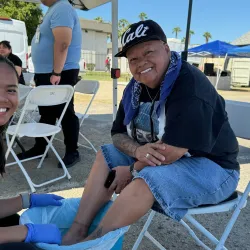
The CSUSB Nursing Street Medicine Program increases access to healthcare by serving the sheltered, unsheltered and other vulnerable populations in the Coachella Valley.
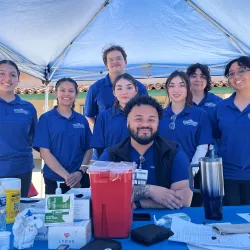
The grant will allow the program to enhance its outreach efforts, improve access to essential medical services and provide hands-on clinical training opportunities for CSUSB nursing students.
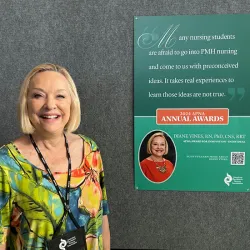
The APNA honored nine extraordinary nurses from across the country in the field of psychiatric-mental health at their 2024 conference for their “exceptional contributions to improve mental health outcomes through prevention, education, leadership, community efforts and science-based treatment.”
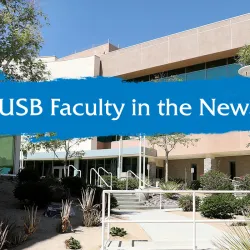
Diane Vines (nursing, Palm Desert Campus) is the recipient of the 2024 American Psychiatric Nurses Association Award for Innovation – Individual, Tamara Cedré (art and design) discussed her work on a project documenting how the logistics industry changed the Inland Empire, and Brian Levin (criminal justice, emeritus) was interviewed for a segment about a man suspected of bringing weapons to a Trump political rally.
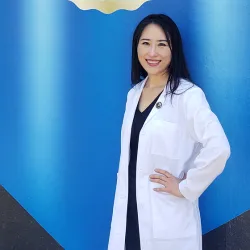
Among Caitlin Kim’s learning experiences at CSUSB was the Nursing Street Medicine program. “It taught me a lot of things about life,” she said.
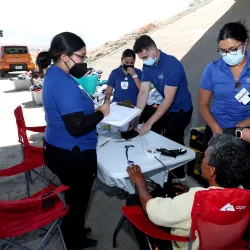
The program provides free healthcare services to homeless, unsheltered and vulnerable people in the Coachella Valley, as well as engages CSUSB Palm Desert Campus nursing students at all degree levels in clinical healthcare activities.
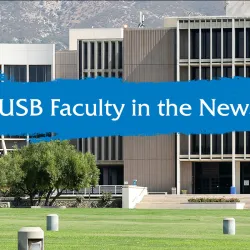
Paloma Villegas (sociology) co-authored an article that examined how students navigated their way through course content during the COVID-19 pandemic, Diane Vines (nursing) was honored by her alma mater, Vanderbilt University, with an award for public service, and Sanjeet Mann (CSUSB Libraries) discussed how he used the Wayback Machine to assist students and faculty in their research.
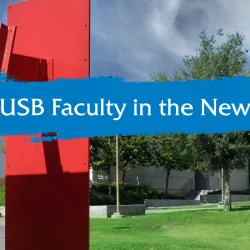
Kristi Papailler (theatre arts) was interviewed for an article about one of her students, Dea Armstrong, who won a national award, and Diane Vines (nursing) was honored by her alma mater, Vanderbilt University, with an award for public service.
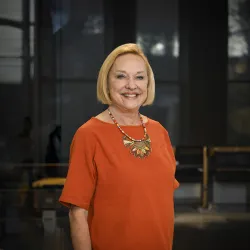
The award was given for her dedication to caring for underserved populations and for her work as founder and director of the CSUSB Nursing Street Medicine Program.